What is Farewell Tawaf? How To Perform Tawaf Al-Wada & Its Importance in Islam

Gather your soul and attune your spirit to the journey of a lifetime to Makkah! Makkah, the sacred city for millions of Muslims, who visit it every year, is filled with spiritual gems, and one of the last rites is the Farewell Tawaf.
The Farewell Tawaf takes place around the Holy Ka'bah and is also known as Tawaf al-Wada, which translates to "the Farewell Tawaf." It is the final stage of your blessed Hajj journey. But what is the Farewell Tawaf, how is it performed properly, and what is its significance in Islam? As you get ready to embark on this spiritual holy journey, let us be your guide for the Farewell Tawaf for Umrah.
Dive in– your sacred journey has not yet ended!
What Is the Farewell Tawaf in Hajj?
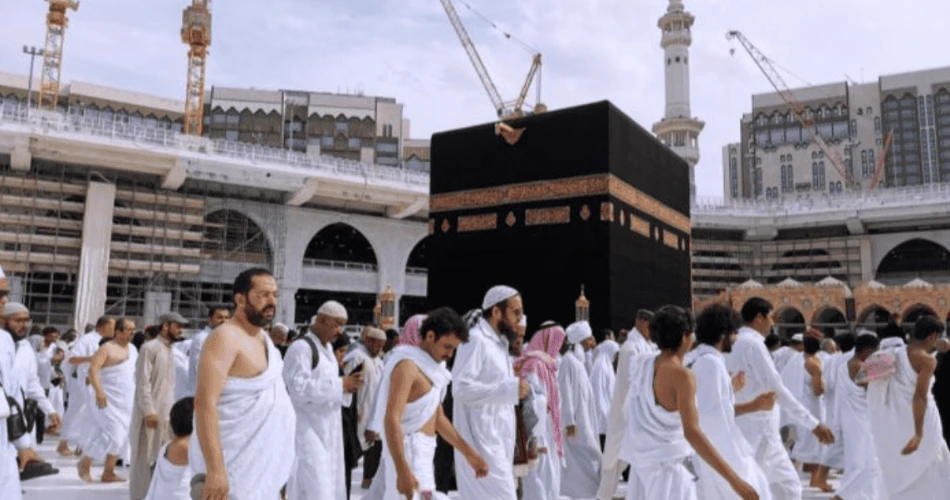
The Farewell Tawaf, called Tawaf Al-Wada in Arabic, is the final rite performed by a pilgrim after completing Hajj just before leaving the sacred city of Makkah. The Farewell Tawaf is a required act performed as a farewell by circling the Holy Kaaba seven times. The Farewell Tawaf is considered to be 'wajib' only for pilgrims who have travelled to Makkah from beyond the Miqat boundaries. People living within the Miqat boundaries do not have to do the Farewell Tawaf ritual.
The Farewell Tawaf ceremony is significant as it is known that the Prophet Muhammad (PBUH) said:
“The people were ordered to circumambulate the Kaaba as the last thing they should do in Makkah, but an exception is for menstruating women.” (Bukhari: 1755, Muslim: 1328)
Also, if someone misses Tawaf al-Wada after Hajj without a valid reason, many scholars agree that a dam (sacrificial animal) is required as compensation.
Tawaf Al-Qudum
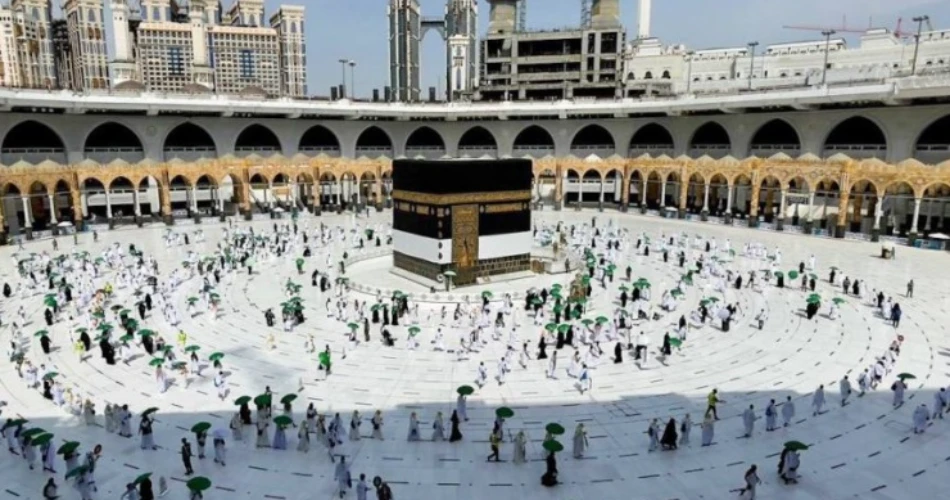
Tawaf Al-Qudum, also referred to as the "Arrival Tawaf," is the Tawaf that pilgrims perform on arriving at the Grand Mosque for Hajj Al-Ifrad or Hajj Al-Qiran. Pilgrims must be in the state of Ihram when doing this Tawaf. Furthermore, it is Sunnah for the men to observe Idtiba—by leaving the right shoulder uncovered—and Raml—by walking briskly in the first three circuits of this Tawaf (but not in Tawaf al-Wada).
Note: Pilgrims performing Hajj al-Tamattu do not perform Tawaf al-Qudum, as they begin with Umrah.
Meaning of Tawaf Al-Wada
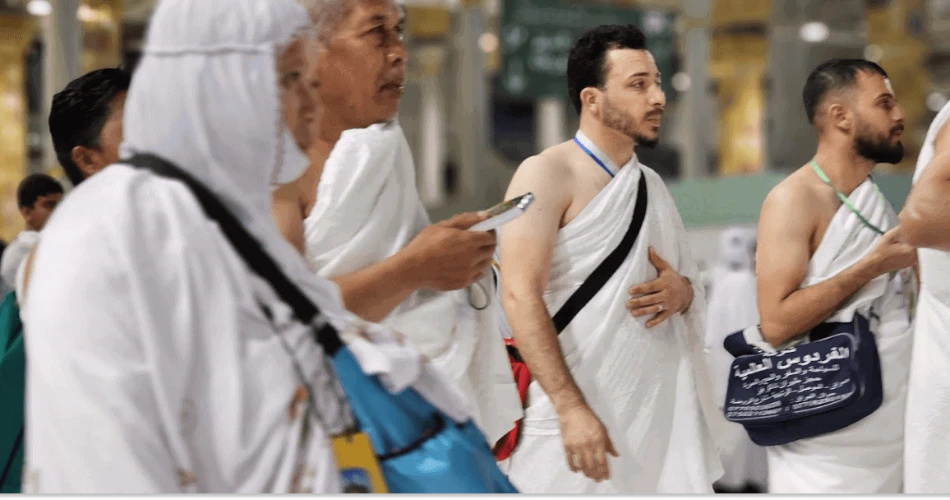
The Farewell Tawaf (Tawaf Al-Wada) is the last time pilgrims circumambulate the Kaaba, as they leave Makkah in Saudi Arabia, after completing the rituals of Hajj. It is the grandest expression of the pilgrims' farewell tribute to the House of Allah SWT. It is the pilgrims' expression of respect and devotion to the House of Allah SWT before returning home. This ritual must be performed by every Muslim pilgrim (except for residents of Makkah and women in menstruation) before they leave. Many narrations show the importance of this ritual.
Ibn Abbas (RA) said that the Messenger of Allah PBUH saw people leaving Makkah from various places after the Hajj. He instructed that when they were done with their obligations and were leaving, as their final act, a pilgrim should circumambulate the Holy Kaaba. The Messenger of Allah (PBUH) said:
“None of you should depart until he makes as his last act Tawaf of the House.” [Al-Bukhari, 1755]
Ibn Abbas (RA) also brought the information that in the early days, menstruating women had to wait until they were pure to perform Tawaf Al-Wada, as quoted:
“And the menstruating woman was first ordered to wait until she became clean of it to make Tawaf al-Wada. Then it was permitted for her to leave without waiting.”
Later, the Prophet (PBUH) made an exception for them and told them they could leave after doing Tawaf Al-Ifadah. [Al-Bukhari, 1755]
Is Tawaf al-Wida Obligatory?
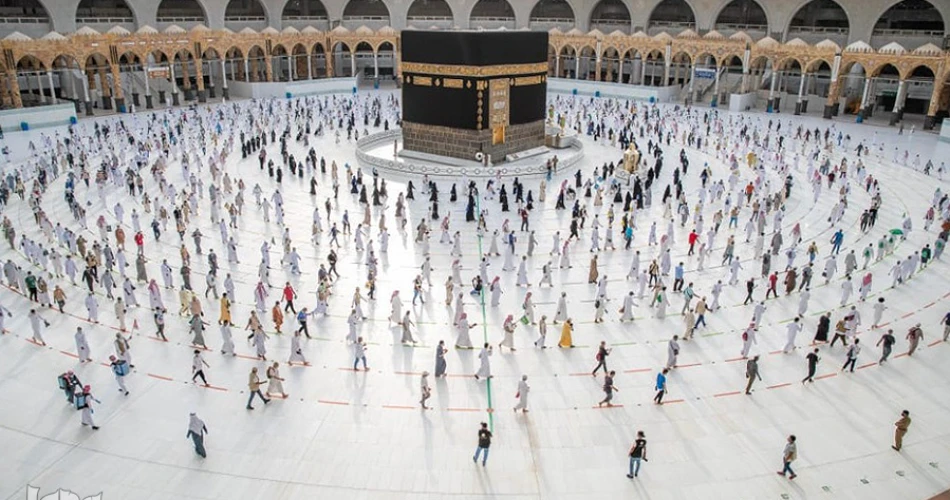
When it comes to Umrah, Tawaf al-Wida (Farewell Tawaf) is not obligatory, but it is highly recommended. For Hajj, Tawaf al-Wida is obligatory and must be done before leaving Makkah. If a pilgrim performs Umrah and cannot do this Tawaf because of time or unavoidable delays, then there is no blame or sin for leaving it out.
However, pilgrims should do Tawaf al-Wida whenever and wherever they can, as it is a very special act of devotion and it marks a proper farewell to the holy haram.
What is the Importance of Tawaf al-Wida?
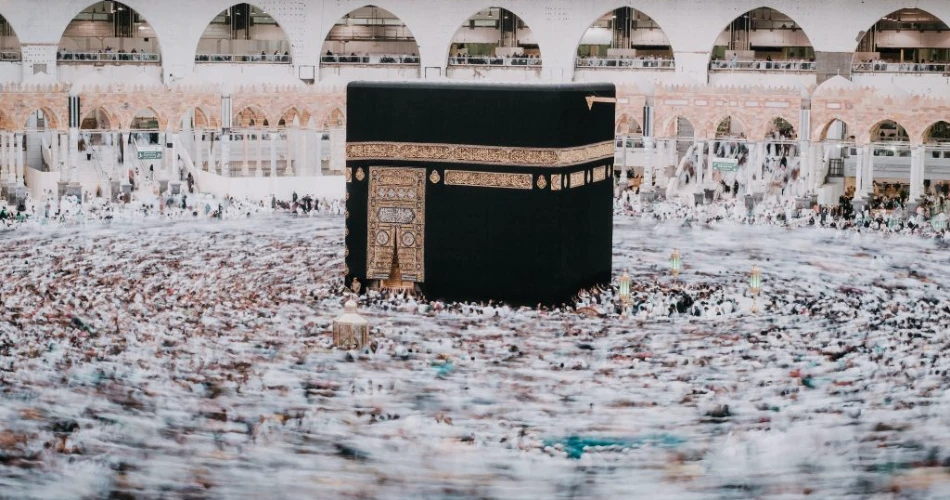
Tawaf al-Wida is deeply meaningful for pilgrims, leaving the Holy Kaaba, the House of Allah. This last circuit is seen as a valuable opportunity to express shukr (thanks), sincere dua (prayer), and seek forgiveness before leaving Mecca. For many, it becomes a point of solemnity, gratitude, and a spiritual sense of closure.
When Should Tawaf Al-Wida Be Performed?
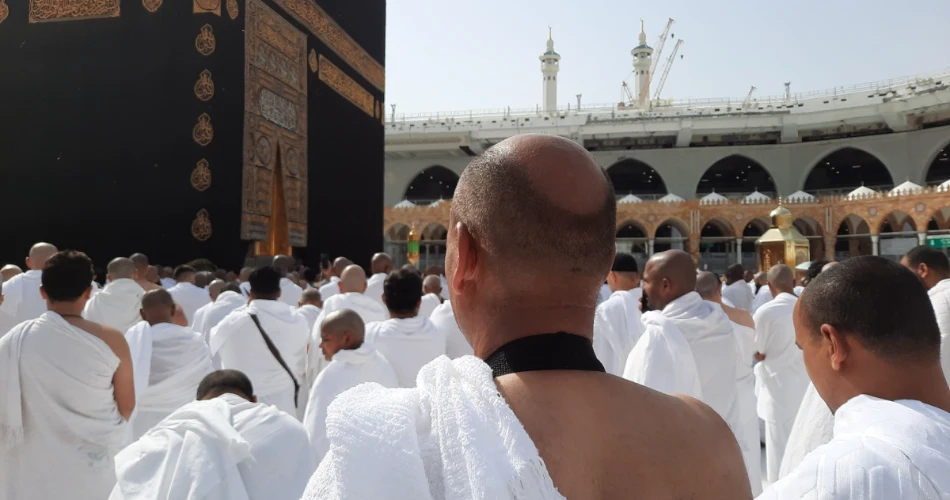
Tawaf al-Wida should be performed immediately before leaving Mecca as the last action of the Hajj or Umrah pilgrimage. Pilgrims should attempt to perform this farewell tawaf as close to departing time as possible. However, if time or other circumstances do not permit, it can be done a little earlier in their stay.
Performing the Tawaf Al-Wida
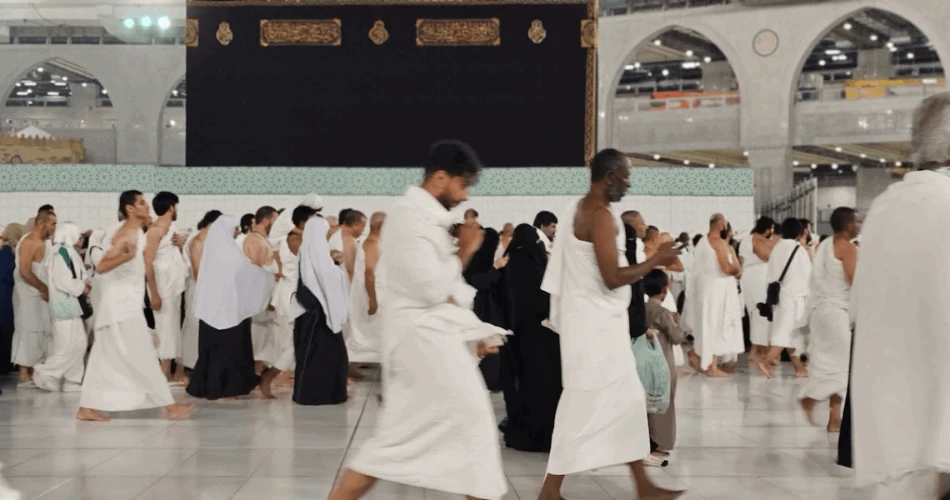
Here is a detailed process for you to conduct Tawaf al-Wada with sincerity and ease:
Enter the Masjid:
Enter Masjid Al-Haram through the gate that is most convenient for you and walk toward the Kaaba.
Perform Wudu:
To be eligible for Tawaf Al-Wida, you must uphold your natural state of ritual purity. Perform Wudu (ablution) and then remove all physical impurity, in addition to ensuring that you have cleansed yourself spiritually. Make your intention (niyyah) for Tawaf al-Wida.
Approach the Kaaba:
At this point, as you come towards the Kaaba, you should stop to take in the gravity of your last Tawaf and also reflect on all of the blessings of your pilgrimage.
You may raise your hands and face the Black Stone, saying "Bismillah, Allahu Akbar" at the start of each round if possible (this is Sunnah but not obligatory).
Start the Tawaf
Stand facing the Kaaba and start your Tawaf by moving in a counterclockwise direction.
Circle the Kaaba Seven Times:
Circle the Kaaba seven times while keeping in mind and in your inner senses the sacred action you are performing as a hope-filled farewell.
Recite Prayers and Say Goodbye:
Along your seven circles, recite prayers, ask the Lord's forgiveness, and/or simply thank Allah for allowing you this journey. This is also a time to say a sincere farewell to the House of Allah.
End the Tawaf:
When you complete the seventh round of tawaf, your tawaf al-wada will be complete, marking the spiritual end of your pilgrimage in Mecca.
Note: No Sa’i is performed after Tawaf al-Wida, and Idtiba or Raml are not practiced in this final tawaf.
Staying near Masjid al-Haram? Explore our handpicked hotels and book the perfect stay just steps from the sacred sanctuary.








